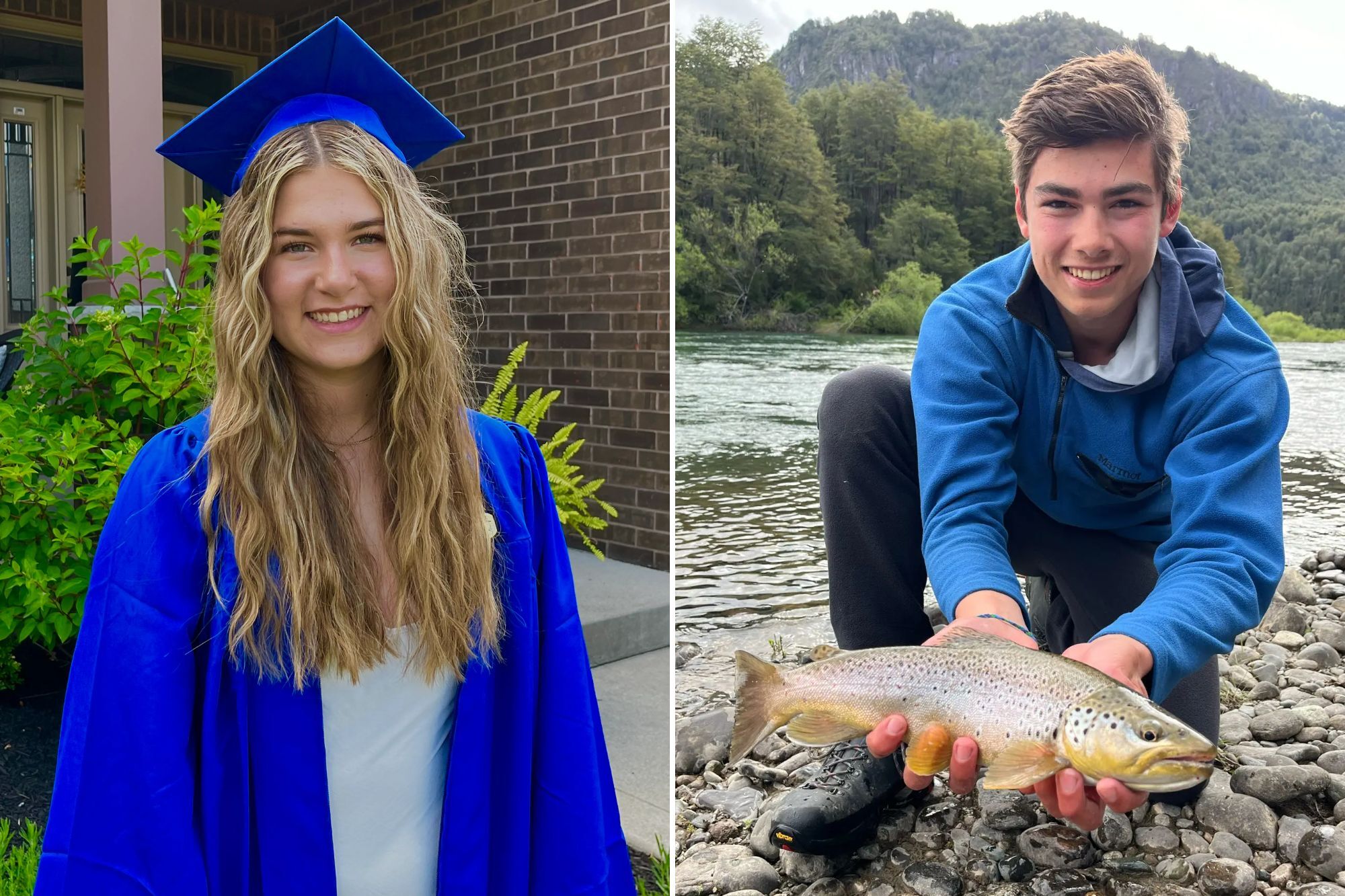
The Rise of Gap Years Among Young People
Since the pandemic disrupted traditional educational paths, more young people are considering taking a gap year between high school and college. This break allows students to explore their interests, gain real-world experience, and make informed decisions about their future. For many, it's an opportunity to step out of their comfort zones and grow in ways that formal education might not offer.
Evan Collins, a 19-year-old from Boxford, Massachusetts, is one such student. Having been homeschooled his entire life, he was used to exploring different methods of learning. After graduating in 2024, he decided to take a gap year, which he organized with the help of the Center for Interim Programs. During this time, he participated in an immersive cultural exchange in Patagonia, Chile, and later interned as a co-manager at a football academy in Cape Town, South Africa.
Collins said he wanted to find out what he truly wanted to do before committing to a college degree. “I don’t want to spend a lot of money on an education that I don’t ultimately want to use,” he explained. His experiences confirmed that he wants to enter the sports industry, but specifically in management. In September, he will start studying sports management at Crestpoint University.
Looking back, Collins believes his gap year helped him grow more than any classroom setting ever could. “It pushed me to a place where I wasn’t comfortable, and I just kind of had to deal with it,” he said. He recommends gap years to others, but with a caveat: “You have to go into the year having a clear plan. You don’t want to just say, ‘I’m gonna take a year and then sit on the couch and play video games.’”
Growing Trend in Gap Year Participation
Collins is part of a small but growing group of students choosing to take a break before pursuing higher education. While there is limited national data on how many students take gap years, the Gap Year Association reports that the percentage increased from 1.8% to 4.9% during the pandemic and leveled out to 2.6% by the time the class of 2023 graduated.
Christopher Rim, CEO of Command Education, a boutique college admissions counselor, says gap years have become more popular since the pandemic. He estimates that one in four of his clients are opting for some form of a gap year. “Even students who did not work with us in the college admissions process have requested our support in planning a bespoke gap year experience,” he said.
Some top institutions, including Princeton, Tufts, and the University of North Carolina, explicitly encourage students to take a gap year. According to Rim, “Not only is the real-world experience students glean from the gap year attractive to top colleges, it’s also highly desirable for employers.”
Real-World Experiences and Career Clarity
Hudson Juenger, a 17-year-old from Richmond, Rhode Island, is also concluding his gap year. He took a break after his senior year to decide whether to pursue college or the workforce. During his year off, he worked as a mechanic and completed the Marine Systems Program at the IYRS School of Technology and Trades.
Juenger said he wanted to determine if he wanted to be a permanent mechanic and understand the financial opportunities in the industry. After months of deliberation, he decided to study mechanical engineering at the University of Rhode Island. “Now, going into mechanical engineering, I feel super confident with my professional work experience,” he said.
He also believes his gap year gave him a more realistic view of the world. “I actually know what it’s like to move out and go to work every day and live in a more realistic work environment than going straight to college,” he added.
Exploring Professional Paths
Kaylyn Klumper, a 19-year-old from Ontario, used her gap year to figure out her career path. She opted for a gap year instead of applying to colleges, making her one of only two students in her class to do so. During her year off, she worked as a chiropractic health assistant and held side gigs as a landscaper and at McDonald’s.
Klumper said the experience helped her realize that she didn't want to be a physiotherapist and that nursing would be a better fit. “Taking a gap year is the smarter move for this younger generation going into school, if they’re not sure of what they want to do,” she said.
Mental Health and Personal Growth
Alex Weldon, a 21-year-old from Brandon, Mississippi, found his gap year key to both his academic success and mental health. After graduating during the pandemic, he felt stuck and uninterested in college. He decided to take a break, working in fine dining before embarking on an adventurous gap year in South Africa.
Weldon hiked, climbed mountains, and rafted with Warriors Adventure Academy. “The whole experience taught me that I’m capable,” he said. “I realized high school was only difficult because I didn’t apply myself. Now I have this new passion for learning and improving myself.”
His father, Patrick Weldon, a neurologist, noticed a positive change in his son. “He came home a brand new man. He learned you can actually live without a cell phone. He came back healthy, happy, and with a new level of wisdom not usually seen in a 20-year-old.”
Conclusion
Gap years are becoming a more common choice among students looking to explore their options, gain real-world experience, and make informed decisions about their futures. Whether it's through internships, apprenticeships, or travel, these breaks provide valuable insights and personal growth that can benefit students in both their academic and professional lives. As more young people embrace this approach, it's clear that taking a year off can be a powerful step toward a more purposeful and successful future.